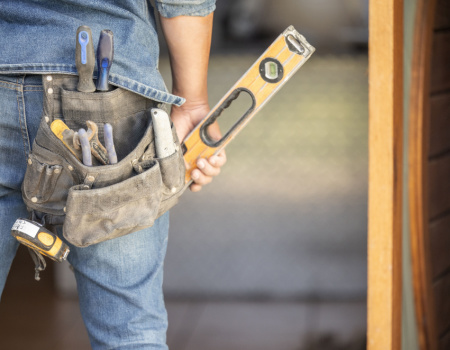Are you a property owner looking to manage your property more effectively without breaking the bank? You’re in luck! With a little know-how and some elbow grease, you can become a DIY property management pro in no time. In this article, we’ll share some valuable tips and tricks to help you successfully manage your property while saving time and money in the process.
Get Organized
The organization is key when it comes to managing your property. Here are some ways you can stay on top of things:
- Keep a detailed record of all transactions, maintenance requests, and tenant communications.
- Create a calendar with important dates, such as rent collection, lease renewals, and property inspections.
- Set up a filing system for all property-related documents, including leases, insurance policies, and receipts.
- Use property management software or apps to streamline your processes and keep everything in one place.
Know Your Legal Responsibilities
As a property owner, it’s crucial to understand your legal obligations to protect yourself and your tenants. Familiarize yourself with:
- Federal, state, and local housing laws and regulations.
- Fair housing laws to avoid discriminatory practices.
- Tenant rights and responsibilities.
- Lease agreements and how to enforce them properly.
Screen Tenants Thoroughly
A great tenant can make all the difference in your property management experience. To find the best fit, be sure to:
- Conduct a thorough background check, including credit history, criminal records, and eviction history.
- Verify income and employment.
- Check references from previous landlords.
- Have a clear and consistent screening process to ensure fair treatment of all applicants.
Keep Communication Lines Open
Communication is key to fostering a healthy relationship between landlord and tenant. Make sure you:
- Provide multiple ways for tenants to reach you, such as email, phone, or text.
- Respond to tenant inquiries and maintenance requests promptly.
- Keep tenants informed about any changes or updates that may affect them, such as scheduled maintenance or property improvements.
Perform Regular Maintenance and Inspections
Staying on top of maintenance is essential for keeping your property in good condition and preventing costly repairs. Be sure to:
- Conduct regular property inspections, both inside and outside the building.
- Schedule routine maintenance for essential systems, such as heating, plumbing, and electrical.
- Address tenant-reported maintenance issues promptly to prevent further damage.
- Establish a network of reliable contractors and service providers for when you need professional help.
Foster a Positive Tenant-Landlord Relationship
Building a good rapport with your tenants can lead to higher tenant satisfaction, longer lease terms, and fewer vacancies. Here’s how you can create a positive environment:
- Be respectful and professional in all interactions.
- Address tenant concerns fairly and promptly.
- Encourage open communication and feedback.
- Show appreciation for good tenants with occasional gestures, such as holiday cards or small gifts.
Stay on Top of Finances
Effective property management also means keeping a close eye on your financial situation. To ensure your property remains profitable:
- Collect rent on time and enforce late fees when necessary.
- Track income and expenses meticulously.
- Budget for routine maintenance, repairs, and improvements.
- Review your property’s financial performance regularly and make adjustments as needed.
- Continually Educate Yourself
Finally, never stop learning! Stay informed about:
- Real estate market trends and property values in your area.
- New technologies and tools that can improve your property management process.
- Changes in housing laws and regulations.
- Best practices for maintaining and improving your property.
Conclusion
Managing your property doesn’t have to be a daunting task. By following these DIY property management tips, you can take control of your investment and ensure it thrives for years to come. Keep in mind that successful property management is a continuous learning process, and as you gain experience, you’ll become more adept at handling challenges and making informed decisions.




